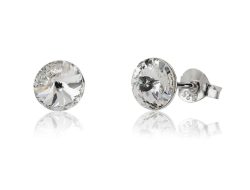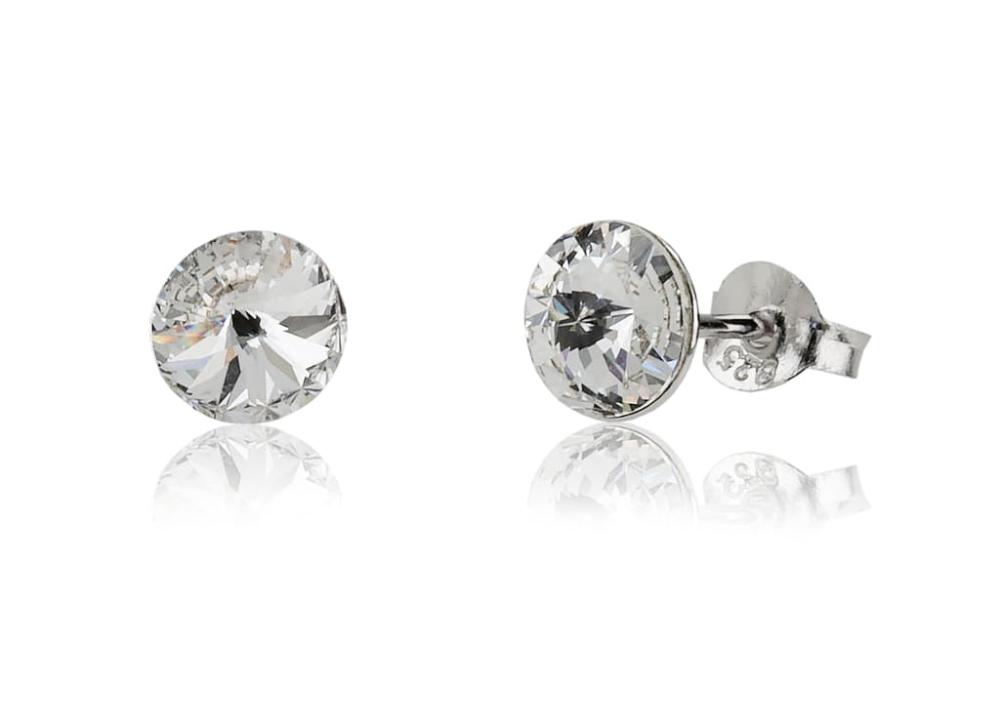What Are Swarovski Crystals And Swarovski Elements – Daniel Swarovski, formerly David Swartz, was the son of a glass cutter in Bohemia, where he learned the art of fine cutting. In 1892, he invented and patented a revolutionary electric cutting machine that harnessed water power and was used to produce crystal glass.
What Are Swarovski Crystals And Swarovski Elements

swarovskijewelry – This allows the crystal to be cut more precisely than by hand. Swarovski is now a fifth generation family business with more than 25,000 employees.
Swarovski has two main businesses: 1) the manufacture and sale of mass-produced goods to industry and 2) the production of precision-cut crystals for jewelry, sculpture and home decoration. In 1956, Swarovski and Christian Dior developed the “Aurora Borealis” effect, which gives crystals a dazzling rainbow glow.
In 1977, Swarovski launched its own jewelry collection, including watches. Swarovski crystals can be found in the fashions of top designers such as D&G, Chanel and Louis Vuitton, whose crystals and crystal mesh adorn many fantastic creations.
In 1995, Swarovski opened a museum in Austria where Swarovski’s extensive collection was exhibited.
Swarovski created the 9-foot-tall, 550-pound star that has been placed atop the famous tree at the Rockefeller Center Christmas Festival in New York City every year since 2004.
What are Swarovski crystals?
Swarovski crystals are artificial gemstones made in Austria. In 1892, Daniel Swarovski invented a machine to produce precisely cut, beautiful, and high-quality leaded glass crystals from quartz, sand, and minerals. The exact proportions of these raw materials remain a company secret.
This special manufacturing process ensures the highest level of precision and produces brilliant crystals. For five generations, the Swarovski family has continued the tradition of producing the world’s most famous crystals at their factory in Wattens, Austria.
Are Swarovski silver crystals made from real silver?
The Swarovski silver crystal line was created by Swarovski craftsmen who managed to capture the shine of silver in the facets of leaded glass crystals. Swarovski silver crystals are made from a combination of natural minerals and quartz sand.
The crystal is then cooled slowly, avoiding tension and imperfections. Swarovski silver crystals have a ghostly shine that gives them their unique silver color and gives the impression that they are made from real precious metals.
Why are Swarovski crystals more expensive than glass?
The production method and processing of raw materials are important factors for the quality of the finished crystal. Swarovski uses only the finest materials to create faceted leaded glass, which is renowned throughout the world for its brilliance and value. Excellent workmanship, materials, cutting and polishing make Swarovski crystals different from other glass works.
According to Swarovski, “cutting hard materials such as crystals and gemstones so that they have hundreds of identical edges in different directions is an extremely complex task; Each direction of the reflected light must first be calculated by a computer, then simulated in three dimensions, optimized and finally implemented into a control program for a complex machine.”
Baca juga : Rekomendasi Buku Menarik Tentang Konten Kreator
How are Swarovski crystals used for jewelry?
Swarovski crystals are used in all aspects of jewelry making. Seasonal collections are introduced annually and typically feature Swarovski crystals combined with precious and semi-precious stones and gold or silver plated metals.
Swarovski offers a diverse line of jewelry for men and women, including necklaces, bracelets, rings, brooches, earrings and watches. This crystal maker has a wide selection of pendants that buyers can use to make necklaces, bracelets, brooches, and cell phone or bag decorations.
Swarovski Crystals
What are Swarovski Elements?
Swarovski Elements is a brand of loose, precision-cut Swarovski crystals used in the fashion, jewelry and accessories industries. Genuine Swarovski crystals are used in products designed and manufactured by other manufacturers. The “Made with Swarovski Elements” label on the product states that it is made with genuine Swarovski crystals.
How to care for Swarovski crystal jewelry?
Swarovski crystal jewelry should be treated in the same way as luxury jewelry. Avoid exposing crystals to water, chemicals, or harsh treatments from work or exercise. Always remove Swarovski crystal jewelry before swimming and after applying makeup and lotion to your skin.
To clean and polish Swarovski jewelry, you will need neutral soap, water, and a soft cloth. If possible, keep Swarovski crystal jewelry in its original packaging. If the original packaging is not available, store the piece in tissue paper or a soft cloth to prevent the crystals from falling off or scratching the metal.
How to know if Swarovski crystals are genuine?
There are several ways to tell whether Swarovski crystals are genuine or imitation. While some factors can be determined simply by looking at the crystal and its packaging, others require observing the crystal through a jewelry glass to determine its finer details.
- There should be no bubbles in the crystal.
- Swarovski crystals have a brilliant shine that far exceeds that of imitation crystals.
- Each Swarovski crystal is the same size and cut because it is made by machine.
- Crystals of the same color group are identical.
- Scratches on the crystal surface or an oily sheen indicate imitation crystals.
- Buying Swarovski crystals from an authorized dealer guarantees their authenticity. Packaging must be in original Swarovski box.
- Swarovski crystals are sold as loose stones and unstrung, except for Swarovski pearls.
- All sides of the Swarovski crystal meet and point upwards.
What is the Swarovski logo?
Since 1989, all genuine Swarovski products have had the Swarovski logo, although the logo may not be visible due to the placement of the crystal on the finished product. From 1976 to 1988, the Swarovski logo was a square C with an S inside. Since 1989 until now, the Swarovski logo has been in the shape of a swan.

